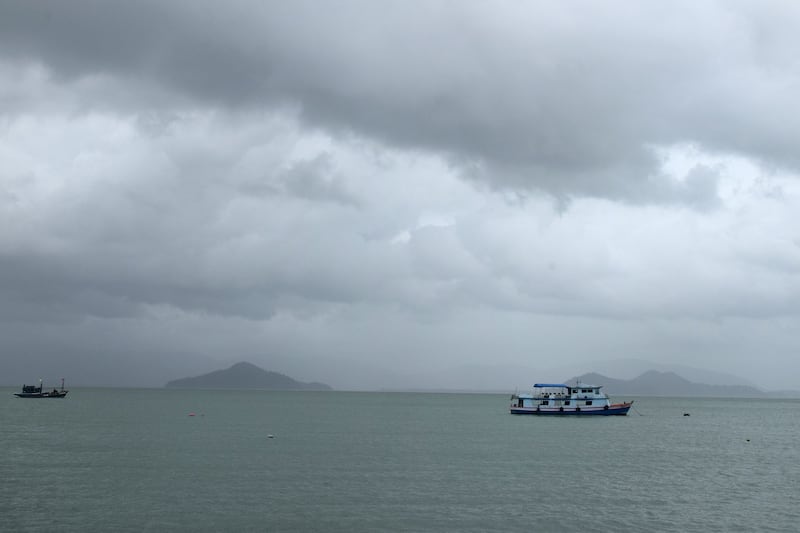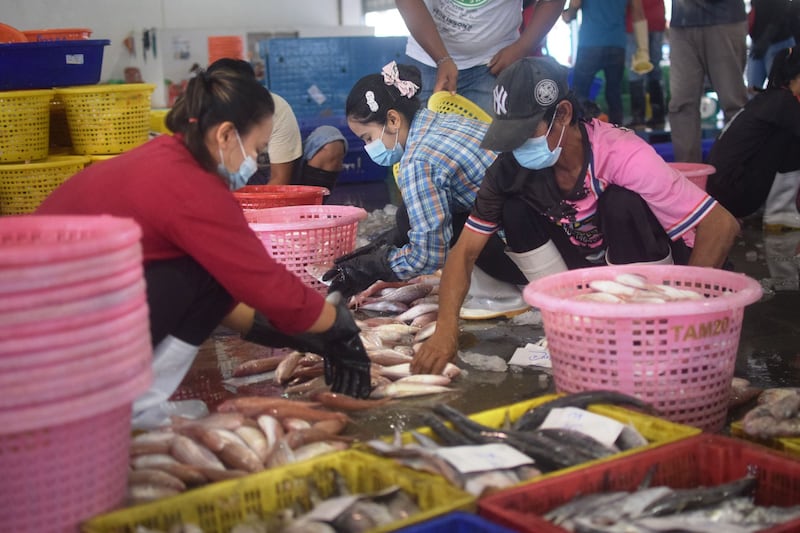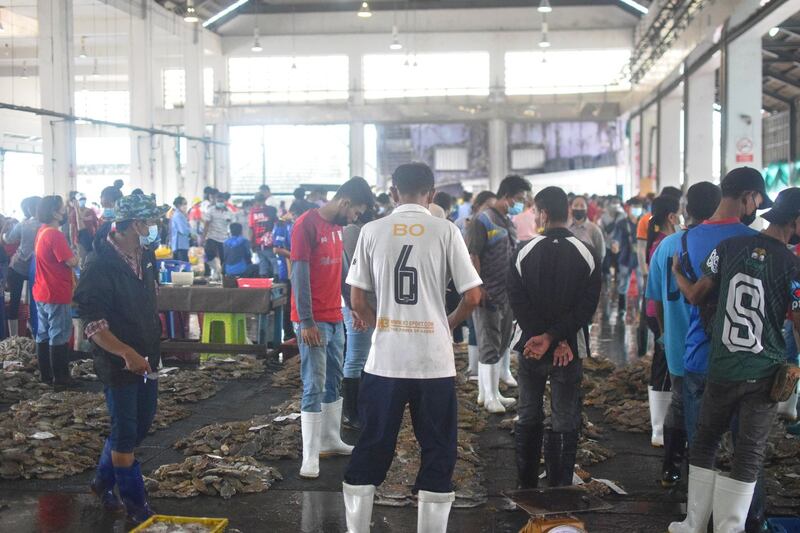Aung Aung, a Burmese fisherman who’s labored for 14 years in waters off southern Thailand, faces an uncertain future thanks to a potential legal overhaul of the Thai fishing industry.
With new laws on the horizon, the 33-year-old says he’s concerned that they might be used to leave fishermen at sea for months at a time – something he’s experienced.
Up until three or four years ago, “when our boats were full of fish, we had to transfer the loads to the transporting boat, and workers had to stay at sea without a need to go ashore,” Aung Aung said.
“In those periods, we faced several challenges, such as shortage of food and medicine, lack of medical attention, and stress and depression if we stayed long in the sea,” he said.
Thailand, once infamous for the enslavement of migrant workers aboard its fishing vessels, sought to reform its image with the Royal Ordinance on Fisheries in 2015, aimed at clamping down on unregulated fishing and brutal treatment of workers on fishing vessels.
Yet, the newly-elected Pheu Thai administration’s initiative to soften these stringent measures has sparked fears of undoing the strides made in protecting workers’ rights.

Since last February, the new government has proposed three drafts attempting to amend the country’s fishing labor laws, arguing that vessel owners and businesses find current laws unfairly strict and damaging to their profits.
The latest draft, proposed in December, would allow vessels to transfer both crew and catch to other vessels while still at sea "in emergencies," and with some restrictions – a practice that labor activists still strongly oppose for its role in keeping trafficked fishermen at sea for long periods of time.
‘More precarious’
Fishers Rights Network President Ye Thwe, who is also Burmese fisherman based in Ranong, said the new bill could undermine other labor protection policies Thailand has already ratified.
“With reduced oversight, migrant fishers will be in a more precarious position that significantly increases our vulnerability to longer hours, lower wages, and substandard living conditions, exacerbating the already dire situation we face,” he said.
But Mongkol Sukcharoenkana, National Fisheries Association of Thailand president, has a different view.
“The at-sea labor transfer is designed for emergency cases, such as crewmen getting sick or an accident onboard. There should be a way out for when there are labor problems, which we can report to the [Port-In Port-Out] center,” he said, adding that a few “rotten apples,” in the past created regulations that punish everyone.
“We also want to be able to swap [crew] between two vessels under the same operator for flexibility but we’re not sure if it can happen,” he said.
In fact, the association suggested in October a return to day-rate cash payments, abolishing the current electronic payment system.
Fishermen can only work 22 days a month by law, so it’s unfair to pay them for a full month, Sukcharoenkana told Radio Free Asia.

But the cash payments system was void of any regulation or scrutiny, said Dominic Thomson, Southeast Asia regional director at the Environmental Justice Foundation.
“It is a very worrying situation for us because we’ve seen how bad the industry can be if it’s just left to its own devices,” said Thomson.
“We’ve seen how transformative regulation and the reforming process can be to the Thai fishing sector. And we’ve seen history is about to repeat itself if the commercial sector gets their way.”
Migrant workers from Myanmar make up a large share of Thailand's agriculture, manufacturing, and hospitality sectors, and comprise roughly 70% of the workers in the fishing industry.
Thailand's Cabinet voted on Jan. 30 to amend the country's fishing laws, with legislators expecting parliament to review the updated draft in the next two months.
Exploited
Even with 2015 protections in place, fishermen and activists say the industry still needs greater oversight so that the workers are not exploited.
A Jan. 25 report found over 99% of surveyed fishermen are not being paid through their bank accounts now, despite being legally required to. The surveys, given in-person by Fishers' Rights Network organizers, included responses from over 1,000 fishermen across 15 ports in Thailand across a seven-week period in late 2023.
Additionally, more than 83% did not have access to their identification documents, including bank cards and books, which are kept by their bosses.

Apart from that, fishermen often suffer from food and supply shortages despite the regulations in place. Aung Aung estimates some 70% of trawlers run out of food on board only halfway through the month-long assignment.
“If you are assigned for a month at sea, many [boat] owners do not provide any more than a 15-day supply of food. No more than that,” he said.
“After the 15th day, you have no food left. Sometimes you did not catch enough fish in the seas and you stayed longer [at sea], but you had no food, not even salt. You have to boil yellow tunas to eat.”
Edited by Taejun Kang and Malcolm Foster.
